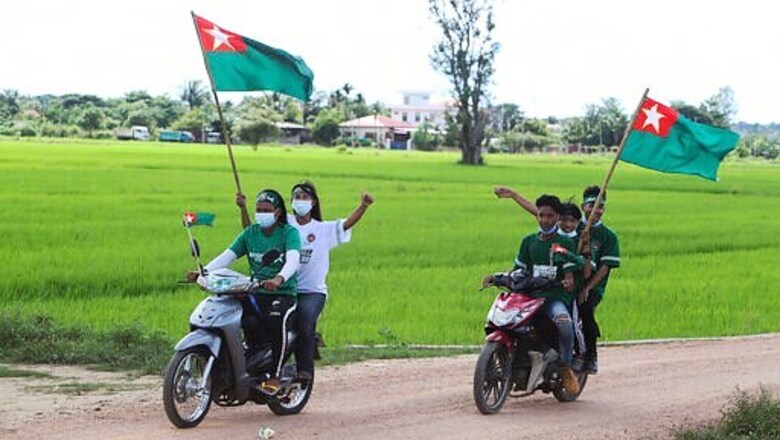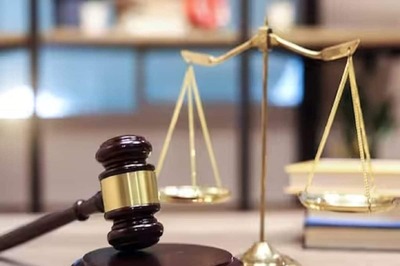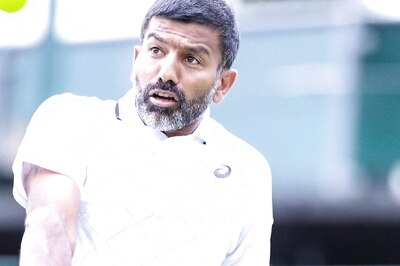
views
YANGON, Myanmar: A Sweden-based organization that promotes democracy and assists in organizing elections said Thursday it is not responsible for a smartphone application’s inclusion of a controversial term describing the ethnic background of at least two candidates in Myanmars upcoming elections.
The International Institute for Democracy and Electoral Assistance, or International IDEA, said in a statement that the content in the mVoter2020 mobile application is the sole responsibility of Myanmars Union Election Commission. The UEC along with the Asia Foundation and STEP Democracy, an EU-funded project implemented by International IDEA in Myanmar, launched the app and its companion website on Tuesday. It is intended to provide voters with information about candidates and the voting process.
The controversy involves the inclusion of the categories race, religion and parents race for candidates in the Nov. 8 polls. In at least two cases, it identifies candidates as Bengali or part-Bengali, a term used by the government for Rohingya, a Muslim ethnic minority that faces widespread prejudice in Buddhist-dominated Myanmar.
Justice for Myanmar, a civil society organization, on Wednesday called international organizations and donors to the mVoter2020 project complicit in the erasure of Rohingya identity and urged the immediate removal of the race and religion categories from the app.
Instead of providing access to much-needed, accurate information for voters, the myVoter2020 app risks inflaming ethnic and religious nationalism during the election, it said in a statement. The publicizing of candidate race and religion would be unacceptable to voters in donor countries, and is unacceptable in Myanmar.
Justice for Myanmar was formed in April as an activist investigative news venture, and its website was temporarily blocked at the end of August after it published details of the militarys business involvements.
One of the candidates identified as Bengali, Dus Muhammed, also known as Aye Win, of the Human Rights and Democracy Party said “We were not informed and didnt have a chance to argue not to use the Bengali label about us in the app. Its like an abuse of our rights.
Prejudice against the Rohingya runs deep in Myanmar, and has led in recent years to mass violence directed against them. The most notorious involved a brutal counterinsurgency campaign by security forces in 2017 that drove an estimated 740,000 to seek refuge in neighboring Bangladesh. The army-directed violence including the burning of villages, rape and murder. International courts are seeking to determine whether genocide was committed.
The Rohingya, who live mostly in the western state of Rakhine, face both official and social discrimination. Many members of other ethnic groups consider them to be illegal immigrants from South Asia, which is why they are called Bengali. Most are denied citizenship and many basic rights, even those whose families have lived in Myanmar for generations. Several Rohingya who sought to be candidates in the election were disqualified.
International IDEA said the information in the app was submitted by candidates in accordance with candidate registration requirements … which includes categorizations of candidates by religion and ethnic affiliation (often referred to as race in the Myanmar context).
It said it understood the sensitivity of using ethnic and religious affiliations, especially in an electoral context, but that numerous jurisdictions around the world … include ethnic identifiers in their electoral systems and practices, often with the aim to ensure fair and equitable representation and inclusion.
The group said it would continue to advocate for reforming the relevant provisions with due regard to international human rights norms and democratic standards (and) to work with all election stakeholders, including the UEC, towards inclusive elections in line with international human rights and democracy standards.
Requests to the the UEC and the U.S.-based Asia Foundation for comment received no response.
–
Peck reported from Bangkok.
Disclaimer: This post has been auto-published from an agency feed without any modifications to the text and has not been reviewed by an editor




















Comments
0 comment